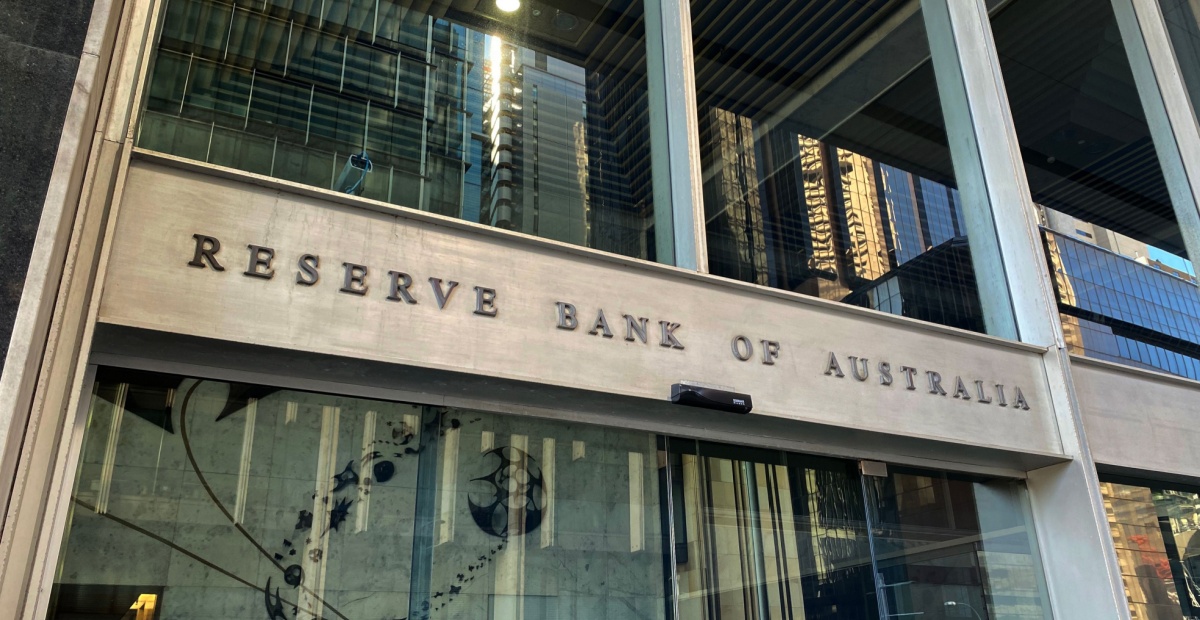RBA leans into favourable CPI, labour conditions with 25bp rate cut

In its first monetary policy decision since the Trump administration both announced and walked back some of its ‘Liberation Day’ trade tariffs, the Reserve Bank of Australia (RBA) has met market consensus and lowered the official cash rate by 25 basis points to 3.85 per cent.
Citing recent Consumer Price Index (CPI) and labour force data releases, the central bank board said the data indicated economic and market conditions had significantly eased and were now within the target range of two to three per cent – the goal it has been working towards since the first bout of policy tightening commenced three years ago.
“Inflation has fallen substantially since the peak in 2022, as higher interest rates have been working to bring aggregate demand and supply closer towards balance,” RBA Governor, Michele Bullock, said in a statement.
“Data on inflation for the March quarter provided further evidence that inflation continues to ease. At 2.9 per cent, annual trimmed mean inflation was below 3 per cent for the first time since 2021 and headline inflation, at 2.4 per cent, remained within the target band of 2–3 per cent.
“Staff forecasts released today project that while headline inflation is likely to rise over the coming year to around the top of the band as temporary factors unwind, underlying inflation is now expected to be around the midpoint of the 2–3 per cent range throughout much of the forecast period.”
The board also addressed the impacts of the Trump administration’s tariff and truce announcements on markets, suggesting that global economic volatility played a part in the monetary policy decision.
“Uncertainty in the world economy has increased over the past three months and volatility in financial markets rose sharply for a time,” the statement said.
“While recent announcements on tariffs have resulted in a rebound in financial market prices, there is still considerable uncertainty about the final scope of the tariffs and policy responses in other countries. Geopolitical uncertainties also remain pronounced. These developments are expected to have an adverse effect on global economic activity, particularly if households and firms delay expenditure pending greater clarity on the outlook.
“This has also contributed to a weaker outlook for growth, employment and inflation in Australia. That said, world trade policy is changing rapidly, thereby making the central forecasts subject to considerable uncertainty.”
However, the statement also said that wile the board had lifted some of its caution due to a pick-up in private domestic demand and household consumption, it still remained vigilant over the rate at which this will occur noting the lag in real effect of monetary policy.
“Setting aside overseas developments, private domestic demand appears to have been recovering, real household incomes have picked up and there has been an easing in some measures of financial stress. However, businesses in some sectors continue to report that weakness in demand makes it difficult to pass on cost increases to final prices,” the statement said.
“At the same time, a range of indicators suggest that labour market conditions remain tight. Employment is continuing to grow, measures of labour underutilisation are at relatively low rates and business surveys and liaison suggest that availability of labour is still a constraint for a range of employers. Looking through quarterly volatility, wages growth has softened over the past year or so but productivity growth has not picked up and growth in unit labour costs remains high.
“There are uncertainties about the outlook for domestic economic activity and inflation stemming from both domestic and international developments. While the central projection is for growth in household consumption to continue to increase as real incomes rise, recent data suggest that the pick-up will be a little slower than was expected three months ago. There is a risk that any pick-up in consumption is even slower than this, resulting in continued subdued growth in aggregate demand and a sharper deterioration in the labour market than currently expected. Alternatively, labour market outcomes may prove stronger than expected, given the signal from a range of leading indicators.
“More broadly, there are uncertainties regarding the lags in the effect of monetary policy and how firms’ pricing decisions and wages will respond to the demand environment and weak productivity outcomes while conditions in the labour market remain tight.”
The statement also confirmed that the board has taken into consideration several scenarios given the ongoing in monetary policy and believes current conditions are “well placed to respond decisively to international developments if they were to have material implications for activity and inflation in Australia”.
“Inflation is in the target band and upside risks appear to have diminished as international developments are expected to weigh on the economy. With inflation expected to remain around target, the Board therefore judged that an easing in monetary policy at this meeting was appropriate,” the statement said.
“The Board assesses that this move will make monetary policy somewhat less restrictive. It nevertheless remains cautious about the outlook, particularly given the heightened level of uncertainty about both aggregate demand and supply.
“The Board will be attentive to the data and the evolving assessment of risks to guide its decisions. In doing so, it will pay close attention to developments in the global economy and financial markets, trends in domestic demand, and the outlook for inflation and the labour market. The Board is focused on its mandate to deliver price stability and full employment and will do what it considers necessary to achieve that outcome.”
Vanguard Senior Economist, Dr Grant Feng, expects the RBA to adopt a “dovish stance” on announcing any further rate cuts, but still believes the official cash rate to come in at 3.35% by the end of this year.
“Today’s rate cut decision largely reflects inflation having fallen back within the Reserve Bank’s target band and the recent easing of U.S. trade policy tensions. Yet, Australia’s labour market remains tight and economic growth is likely to remain strong over the near term,” he said.
“Today’s rate cut was warranted because of the underlying weakness in private sector demand and ongoing concerns over external events. Although Australia’s economy avoided a recession during the rates hiking cycle, growth has been predominantly driven by public demand, thanks to expansionary fiscal policy. Private demand growth has remained subdued due to the tightened monetary policy.
“Moreover, headline growth figures may not fully capture the economic reality, as GDP per capita has declined for seven consecutive quarters, despite positive aggregate growth readings. However supply-side weakness, especially lacklustre productivity growth, will continue to challenge the disinflation progress. Considering that the labour market remains tight, which will continue to exert upward pressure on unit labour costs, we believe that the disinflation process in Australia will be slow.
“Vanguard expects trimmed mean inflation to stay within the RBA’s target band, although it is likely to stay in the top half of the band at least in the near term. In addition, while global trade dynamics are set to weigh on business confidence, recent trade discussions have reduced the downside risk of external shocks to domestic economic activity.
“That said, Vanguard remains cautious on the downside risk given the complexity of the issues at stake, including both tariff and non-tariff barriers.”











I think these numbers are too low. Especially if you live in major cities. I try to ensure none of…
Are Interprac / Sequoia going to pay the 10’s of $$ millions in AFCA complaints ? Even after Macquarie &…
Always back self interest when a body is marketing a submission to the government
In other words the system is achieving what the government wanted to happen.
Every day I come on here it feels like it is just the SMC trying to lobby to make one…